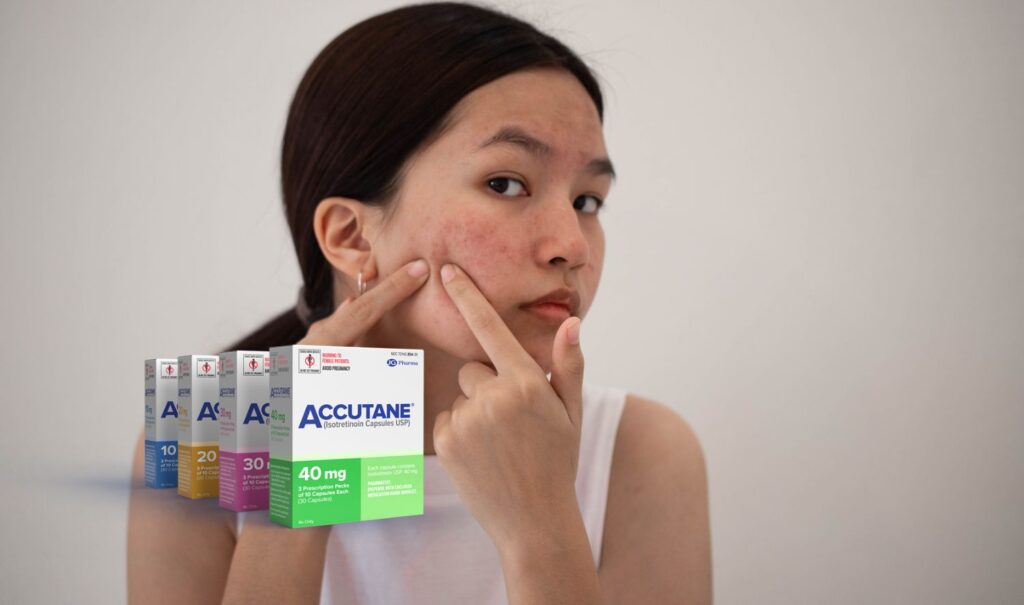Accutane, also known as isotretinoin, has been a groundbreaking medication in the field of dermatology, particularly for treating severe acne. Its development and use have been marked by significant scientific advancements, regulatory challenges, and patient success stories. This comprehensive guide explores the history of Accutane, tracing its journey from discovery to its modern-day application.
The Discovery of Isotretinoin
Early Research on Vitamin A
The origins of isotretinoin are closely tied to the study of vitamin A. In the early 20th century, scientists recognized that vitamin A played a crucial role in skin health. Researchers discovered that vitamin A and its derivatives, known as retinoids, could influence cell growth and differentiation, particularly in the skin.
The Birth of Retinoids
The therapeutic potential of retinoids became apparent when researchers began synthesizing various forms of vitamin A. In the 1960s, scientists successfully created synthetic retinoids, leading to a deeper understanding of their potential medical applications. This period marked the beginning of an era where retinoids were explored for their effects on skin conditions.
The Development of Accutane
The Role of Roche
The pharmaceutical company Hoffmann-La Roche played a pivotal role in the development of isotretinoin. In the early 1970s, Roche researchers were investigating retinoids for their potential in treating cancer. While isotretinoin showed promise as an anti-cancer agent, its most significant impact was found in dermatology.
Clinical Trials and FDA Approval
The first clinical trials of isotretinoin for acne treatment began in the late 1970s. These trials demonstrated that isotretinoin was remarkably effective in treating severe, recalcitrant acne. The success of these trials led to the FDA approving isotretinoin under the brand name Accutane in 1982. This approval marked a significant milestone, as Accutane became the first oral medication capable of treating severe acne effectively.
Accutane’s Impact on Acne Treatment
A Breakthrough in Dermatology
Before Accutane, treatments for severe acne were limited and often ineffective. Topical treatments and antibiotics provided only partial relief for many patients. Accutane revolutionized acne treatment by offering a solution that targeted the root causes of severe acne, including excessive sebum production, clogged pores, and inflammation.
The Mechanism of Action
Accutane works through several mechanisms:
- Reducing Sebum Production: It shrinks sebaceous glands, reducing oil production.
- Preventing Pore Clogging: It normalizes the shedding of skin cells within hair follicles.
- Anti-Inflammatory Effects: It reduces inflammation associated with acne.
- Killing Acne-Causing Bacteria: It creates an environment less favorable for the growth of Propionibacterium acnes.
The Efficacy of Accutane
Accutane’s efficacy was unparalleled, with many patients experiencing significant improvement or complete remission of severe acne after one course of treatment. This success made it a popular choice among dermatologists and patients alike.
The Challenges and Controversies
Side Effects and Risks
Despite its effectiveness, Accutane was not without its challenges. The medication was associated with several side effects, ranging from mild to severe. Common side effects included dry skin, chapped lips, and dry eyes. More severe side effects included teratogenicity (causing severe birth defects), elevated liver enzymes, increased lipid levels, and potential mental health effects such as depression and suicidal thoughts.
The iPLEDGE Program
To mitigate the risks, particularly the teratogenic effects, the iPLEDGE program was introduced in 2006. This stringent risk management program required patients, healthcare providers, and pharmacists to adhere to strict guidelines. Women of childbearing age had to use two forms of contraception and undergo regular pregnancy tests before and during treatment.
Legal and Regulatory Issues
Accutane faced numerous legal challenges over the years. There were several high-profile lawsuits alleging that the drug caused severe side effects, including inflammatory bowel disease and mental health issues. These lawsuits led to significant financial settlements and increased scrutiny from regulatory authorities.
Modern Use of Isotretinoin
Generic Isotretinoin
In 2009, Roche discontinued the production of Accutane, citing market pressures and the high cost of defending against lawsuits. However, isotretinoin remains available through generic versions such as Claravis, Sotret, and Amnesteem. These generics have made the medication more accessible and affordable for patients.
Advances in Treatment Protocols
Modern protocols for isotretinoin use have evolved to maximize benefits while minimizing risks. Dermatologists now use lower dosages and longer treatment durations to reduce side effects. Additionally, advances in skincare have provided patients with better options for managing the dryness and irritation associated with isotretinoin treatment.
Expanded Indications
While isotretinoin is primarily known for treating severe acne, its applications have expanded. Dermatologists sometimes prescribe it for other skin conditions, including rosacea, seborrheic dermatitis, and even certain types of skin cancer. Research continues to explore new therapeutic uses for isotretinoin.
Future Directions for Isotretinoin
Ongoing Research
Research on isotretinoin continues to advance. Scientists are investigating ways to reduce its side effects while maintaining its efficacy. New formulations and delivery methods are being explored to improve patient outcomes.
Personalized Medicine
The future of isotretinoin treatment may lie in personalized medicine. By understanding individual genetic and metabolic differences, dermatologists could tailor isotretinoin dosages and treatment plans to minimize side effects and maximize benefits for each patient.
Alternative Therapies
While isotretinoin remains a cornerstone of severe acne treatment, alternative therapies are also being developed. These include biologics, which target specific pathways involved in acne formation, and novel topical treatments that offer new hope for patients with moderate to severe acne.
Conclusion
Accutane, or isotretinoin, has had a profound impact on the treatment of severe acne since its discovery. From its early days as a promising retinoid to its modern use in dermatology, isotretinoin has transformed the lives of countless individuals. Despite the challenges and controversies, its efficacy remains unparalleled. As research continues and treatment protocols evolve, isotretinoin will likely remain a critical tool in the fight against severe acne, offering hope and healing to those who need it most.

